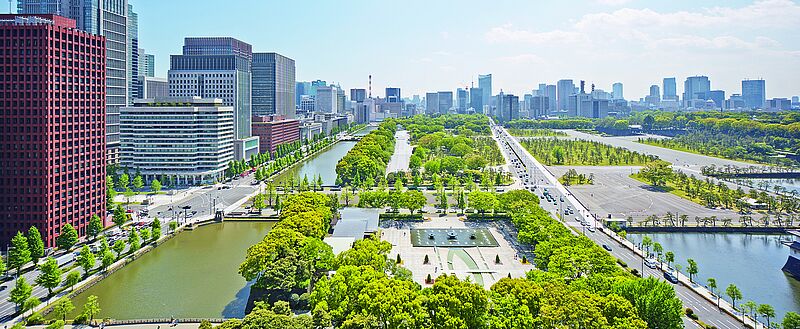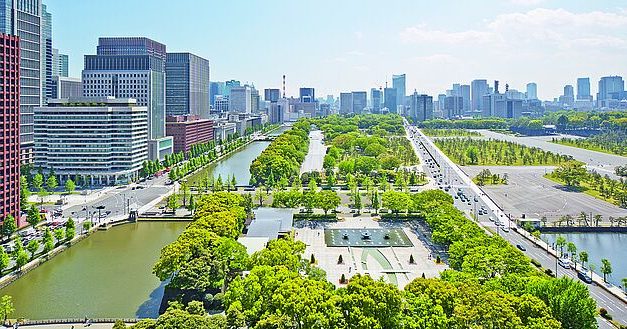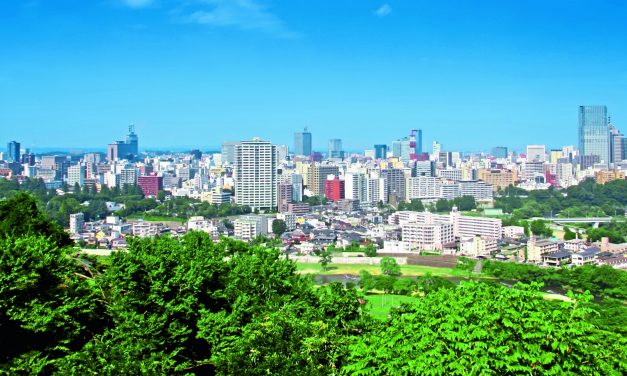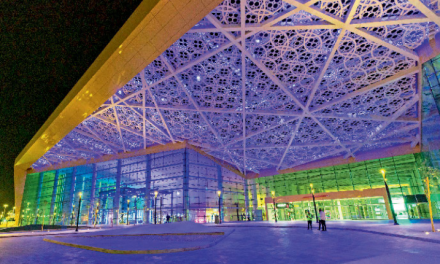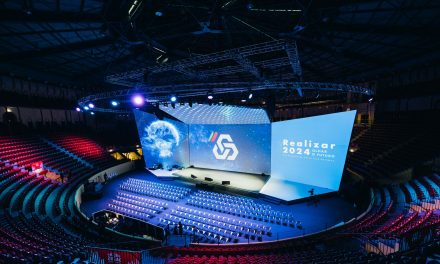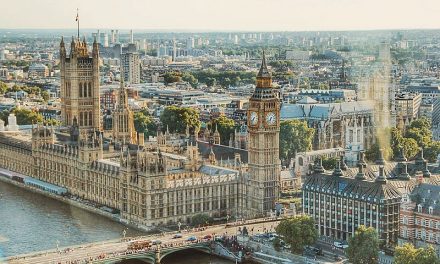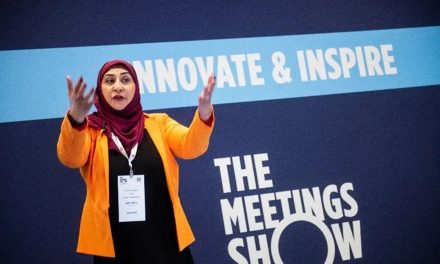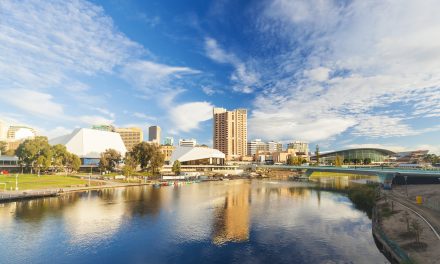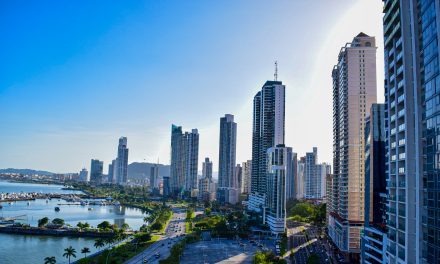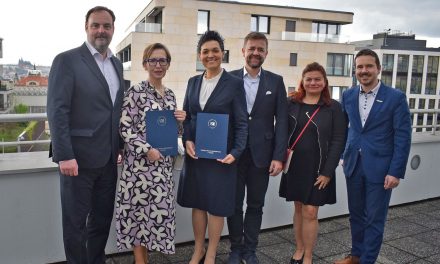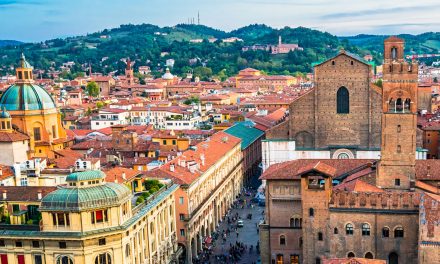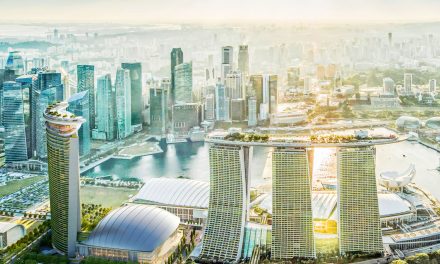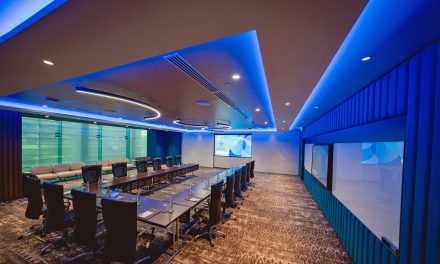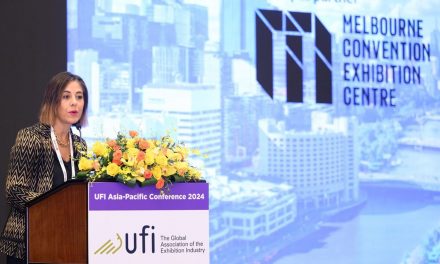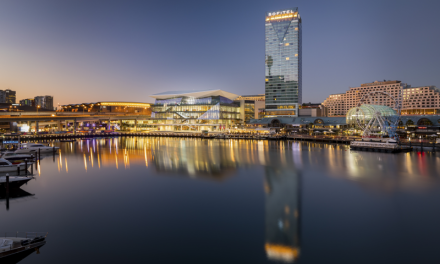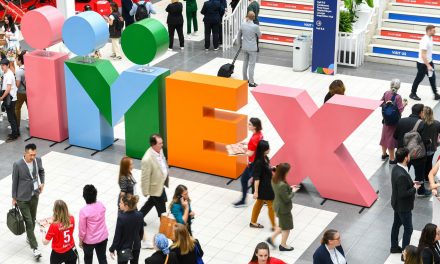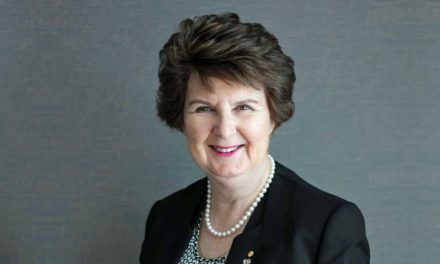New ideas. Japan welcomed a record 31.19m visitors from abroad in 2018. The Japan National Tourism Organisation (JNTO) estimates revenues from international business events at around 4.2 bn euros. The global MICE branding strategy (tagline: “New ideas start here”) places the focus on Japanese inspiration and innovation. 40 m visitors are expected in 2020. Huge events such as the G20 summit and Rugby World Cup in 2019, the 2020 Olympic Games in Tokyo and the 2025 World Expo in Osaka are already having an impact.
“Japan is seventh in the ICCA’s country rankings. Ten new MICE venues will be opening around the country in the next ten years,” reports Etsuko Kawasaki, Executive Director of the Japan Convention Bureau. In late February he welcomed international hosted buyers for the first time at the 28th International MICE Expo Japan (IME) at the Tokyo International Forum. A total of 500 buyers learned what Japan has to offer at 97 stands.
The opening of Aichi Sky Expo in September 2019, offering 60,000 sqm of space and a convention centre, is keenly anticipated. Located at Chubu Airport, between Tokyo and Kyoto, the venue will be run by GL Events. The Pacifico in Yokokama, a city just outside Tokyo, will have 44,000 sqm of event space from April 2020 following an extension. A convention centre is opening in Nara, where there are three Unesco world heritage sites, in 2022. Kansai Science City in northern Nara is a significant source of conventions.
The World Congress of Neurology 2017 in Kyoto is one example of how Japan’s culture lends itself to meetings. “8,600 delegates came, although only 5,000 had been expected. That highlights Japan’s appeal,” explains Hidehiro Mizusawa, President of the National Center of Neurology and Psychiatry.
Tokyo is the centre of Japan’s convention industry. “30 per cent of our 61 convention ambassadors live in Tokyo,” says Mamoru Kobori of the JNTO. The central vision for the 2020 Olympics is sustainability, tradition, innovation and security. Facial recognition technology will be used at the gates of the 80,000-seat stadium. The IOC will be based at the Imperial Hotel, which, like the Palace Hotel Tokyo, is a Leading Hotel of the World and offers large meeting rooms.
The central district of Marunouchi, where the government, banks and large companies are based and 25 percent of Japan’s GDP is generated, has pooled its MICE offerings. Tokyo Kaikan, where the Queen stayed in 1975, reopened in January 2019. It offers a number of large function rooms including an iconic ballroom, The Rose, which can hold 2,000 for cocktails. The Kanda Myojin shrine delights visitors with an authentic experience of the culture of the Edo period. The idea behind the Edo Cultural Complex (EDOCCO), its official name, is to combine tradition and innovation. Kabuki dancing and temple ceremonies can be booked, as can halls with cutting-edge technology. The Urban 20 Mayors Summit is coming in May 2019.
The Nippon Gallery showcases Japan’s innovative technology. The wonders of the natural world in Japan are displayed on LED walls measuring 2.7 by 10 metres, providing a rich virtual reality experience. The second Artificial Intelligence Exhibition & Conference (AI Expo) took place at the Tokyo Big Sight exhibition centre from 3 to 5 April 2019, attracting 250 exhibitors and around 50,000 visitors. This iconic building offers 230,000 sqm of space as well as rooms for 1,000 delegates in its conference towers. The Urban Resilience Forum (URF) right after the Urban 20 Mayors Summit is close to the heart of Tokyo’s mayor. It will focus on shared responsibilities and unique initiatives in relation to effective disaster risk management.
Resilience is a central issue for Sendai. A 90-minute high-speed train ride from Tokyo, this city on Japan’s north-east coast suffered the consequences of the tsunami in March 2011. “Sendai’s motto is ‘Resilience, Harmony and Inspiration’,” emphasises Asuka Tashiro of the Sendai Convention Bureau. Since the earthquake, which was a 9 on the Richter scale, the city has risen like a phoenix and now organises disaster-prevention study tours.
The 17th World Congress on Earthquake Engineering is coming to the Sendai International Center in September 2020. Funds of up to 80,000 euros are available for international conventions with at least 1,500 delegates. The Tohuku Forum for Creativity established at Sendai’s Tohoku University invites international researchers to take part in an annual multi-disciplinary event. Elegant hotels such as the Westin, which has meeting rooms with views of snow-covered mountains, or the Metropol by the station, receive plenty of bookings, as does the Royal Park Hotel, which offers incentive options. A boat tour of nearby Matsushima Bay, which has 260 islands, is highly recommended.
Tsukuba, an hour north-east of Tokyo, is a host city of the G20 summit in June 2019. In Japan’s biggest science city, established in 1987 to reduce the burden on Tokyo, ministers for trade and the digital economy will be meeting at the Tsukuba International Congress Centre. Tsukuba also hosted the meeting of science ministers at the G7 summit in 2016. The ministers visited the National Institute of Advanced Industrial Science and Technology (AIST) and the Tsukuba Space Center.
Sansuitei offers authentic Japanese culture and cuisine. Designed to resemble a Samurai residence and surrounded by a large Zen garden, its rooms are decorated in traditional Japanese style. “Most of Japan’s national scientific institutes have their headquarters in Tsukuba. As the world’s largest research complex, with researchers from 78 countries, we are well positioned in the global convention market,” says Hiroshi Hoshino, Secretary General of the Tsukuba Tourism & Convention Association.
- Sendai positioniert sich mit dem Thema Resilienz. Photo: Sendai CVB

